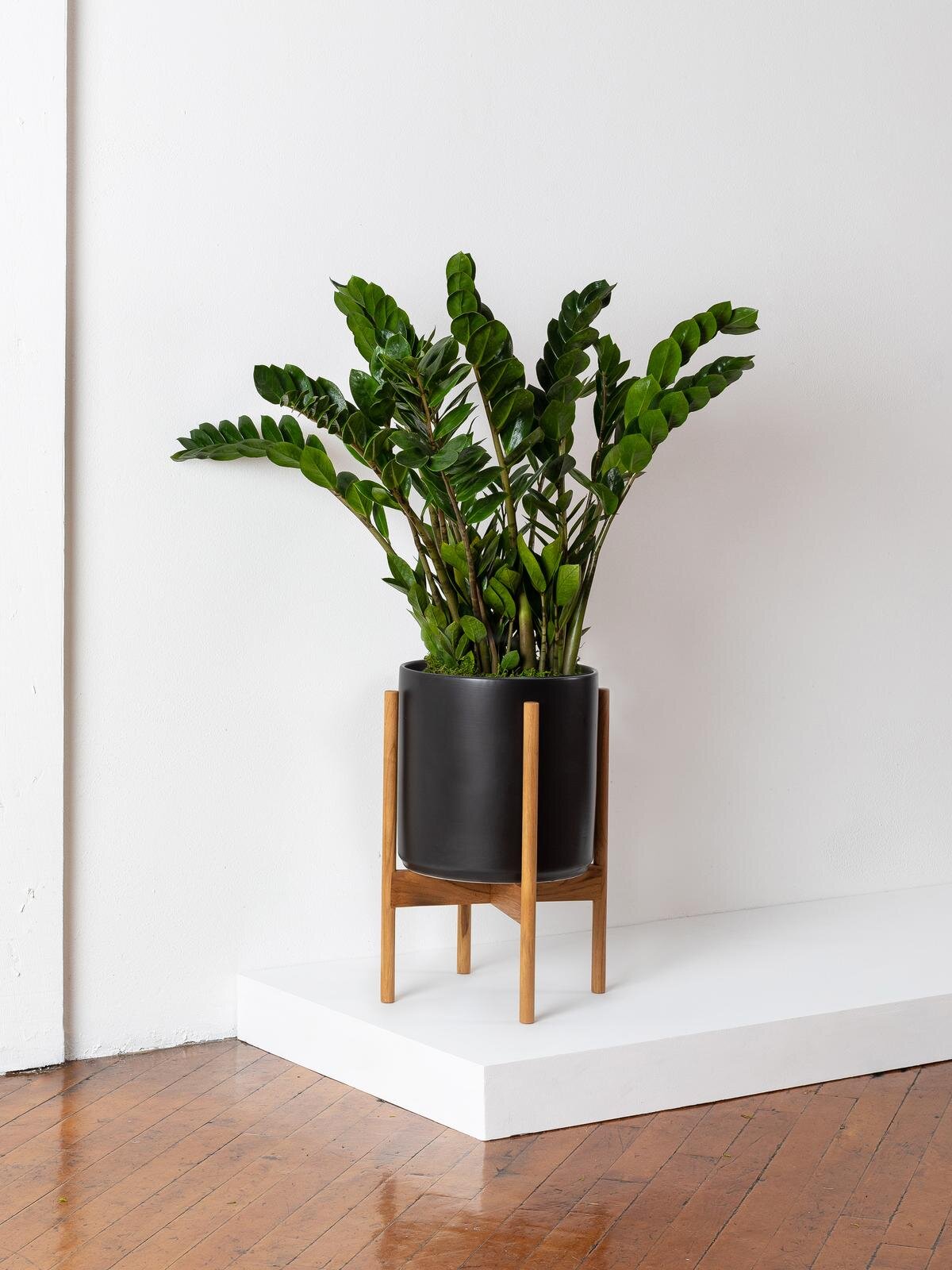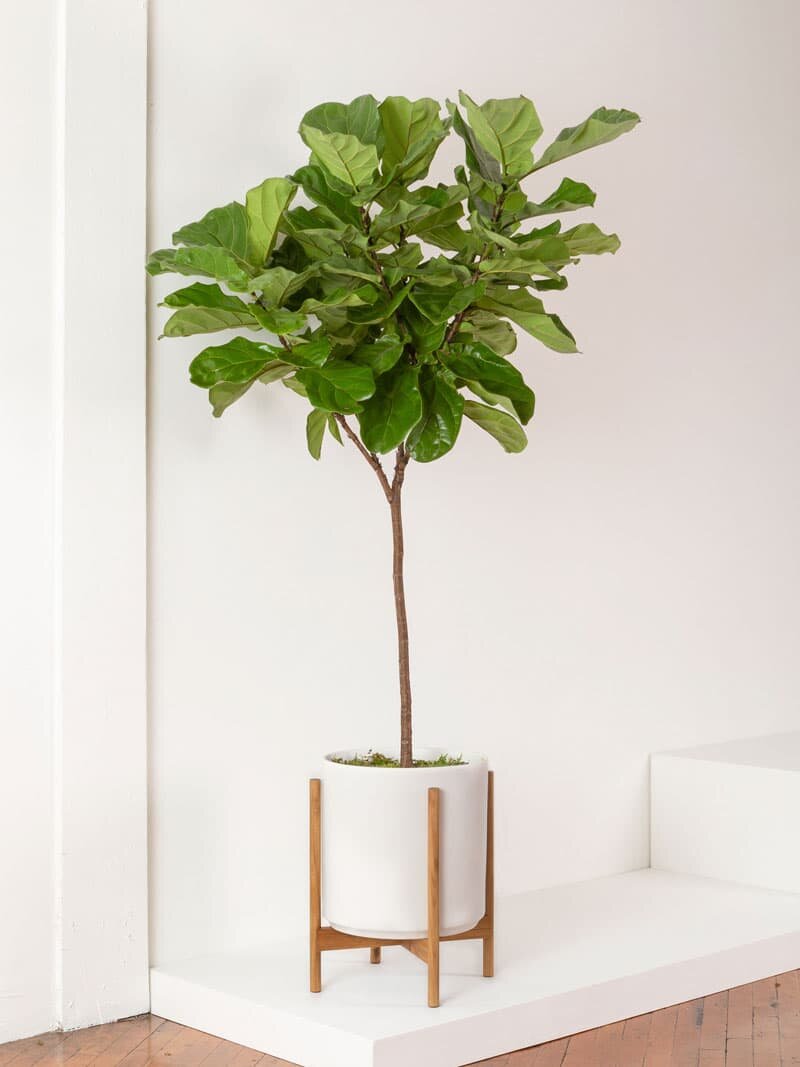Feng Shui Plants: Greenery That Goes The Extra Mile
Indoor plants do so much for us. They add beauty to our space, clean our air, and come with a myriad of mental health benefits to boot. But what if they could do even more? According to the teachings of Feng Shui, they can.
We asked expert Anjie Cho of Holistic Spaces to give us the scoop on how plants can bring us good Feng Shui, which plants are particularly impactful, and where to place them in our homes to maximize the benefits.
“Plants are a way to bring nature’s energy into our homes and interior environments. Nowadays, we spend more and more time indoors, and having plants in our homes is a way to reconnect with nature and ground us,” says Cho. “In an energetic sense, they are very healing for us, and in a practical sense, they improve the air quality, provide soft surfaces, and beautify our home.”
What is feng shui?
In a nutshell, Feng Shui is an ancient Chinese philosophy which uses energy forces to harmonize individuals with their surrounding environment and the natural world. Translating to “wind” (feng) and "water” (shui), the basic principles of Feng Shui lie in the belief that we can live more harmonious and fulfilling lives if we connect and flow with the space around us.
“It’s about mindfulness of our home environments,“ says Cho. “It’s paying attention to all the details in our home so that we can create more supportive and nurturing environments that inspire joy and relaxation,” she adds.
“It’s really important nowadays as we are so inundated with stress and speediness in our modern lives. Having a place to to recharge is more necessary than ever, and Feng Shui gives us the tools to know how to create environments that support us.”
Using plants for better feng shui
There are five elements in Feng Shui, and plants represent the wood element, which, according to Cho, “contributes to life-affirming, bright, and healing energy, and as such can help us create more harmony in the home.”
While Cho believes that all living plants are great for Feng Shui, you don’t want unhealthy plants, as sick and dying plants represent sick and dying energy. And as a general rule of thumb, she recommend plants with soft and rounded foliage, as opposed to spiky or thorny stems or leaves.
In terms of placement, a few areas she recommends are the wealth area, the entrance, and offices or bedrooms:
Wealth area - Stand in the doorway facing any room, you can generally find the wealth area in the far left corner. Place greenery here to promote wealth and prosperity, and consider even the Braided Money Tree for extra luck in this area.
Entryway - Representing your “face to the world”, putting plants at near the entryway of your home helps to cultivate and invite more positive energy into your space and life.
The office - Use plants on your desk or in your office for success in your work and career.
The bedroom - Place plants in the relationship area of your bedroom for growth and harmony in your relationship.
The best Feng Shui plants
Almost all living plants are good for Feng Shui, but are there some more powerful than others? Cho shared with us some of her favorite Feng Shui plants and why, so get ready to dive into the world of Feng Shui with a beautiful indoor plant!
Zanzibar gem
“The Zanzibar Gem is easy to grow and is great at withstanding drought. It represents resiliency, grounding, and longevity. Its upward growing leaves and fast-growing nature are also symbolic of good fortune.” adds Cho.
PILEA PEPEROMIODES
“Some plants are more auspicious than others,” explains Cho. “Also known as the Chinese Money Plant, the leaves round like coins and echo feelings of abundance.” She recommends placing this plant in the wealth area of the home.
Fiddle leaf fig tree
“These plants are known to be finicky, but that can be a good thing. It’s a plant that might require more patience and upkeep than some others, helping to cultivate kindness and challenging us to consider and care for another living thing.”
Braided money tree
“Another plant associated with wealth and prosperity in Feng Shui, the Money Tree is a great choice to place in an office or in the wealth area of your home,” says Cho.
cascading pothos
“I received this plant as a housewarming gift when I moved to New York in 2003 — it is so resilient and has traveled with me to many homes,” tells Cho. “This plant shows a lot of growth and is great for beginners.”
Anjie Cho is a Feng Shui expert. She is the founder of the Holistic Spaces blog, store, and podcast as well as the co-founder of the Mindful Design Feng Shui School, where she teaches courses. Check out her book Holistic Spaces: 108 Ways to Create a Mindful and Peaceful Home by CICO books. More info at www.holisticspaces.com
Indoor plants, potted & delivered.
Premium plants paired with stylish ceramics, plus lifetime plant care support. Order online at leonandgeorge.com
















